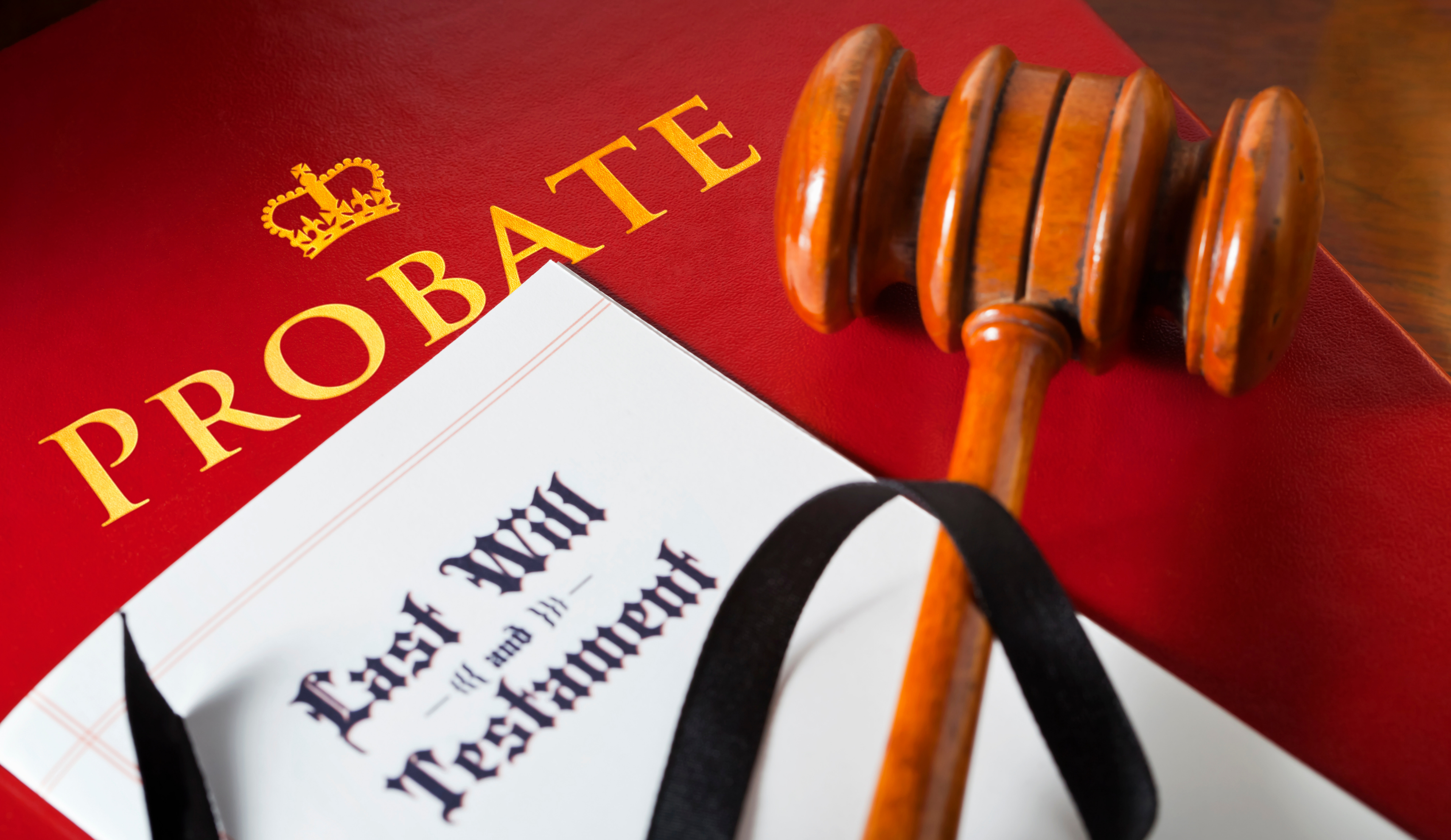How to Apply for Grant of Letters of Administration Under Singapore’s Intestacy Laws?
This article explains what Grant of letters of Administration is, when and how to apply for one, and how the deceased’s assets distributed by the administrator
If someone with property and/or other assets (an estate) dies in Singapore without having left a written will behind, his/her estate must be administered and disbursed according to Singapore’s intestacy laws. The administrators of the estates of non-Muslims must abide by the Intestate Succession Act but the administrators of the estates of Muslims must comply with Administration of Muslim Law Act.
This article covers the process required for the estates of non-Muslims under ISA for loved ones who have died “intestate” without having left a valid will.
Table of Contents
Grant of Letters of Administration: What is this?
When to Apply for a Grant of Letters of Administration
Can Anyone be an Administrator?
Is There a Limit on the Number of Administrators?
What If I Have No Interest in Being an Administrator?
Applying for a Grant of Letters of Administration
How Are the Deceased’s Assets Distributed by the Administrator?
What Happens if the Deceased Who Died Intestate With No Will was a Muslim, or Passed Away Overseas?
Grant of Letters of Administration: What is this?
Before you can begin administering a deceased relative’s estate, you must first apply for a Grant of Letters of Administration from the court.
Through this legal document the court would be appointing you as the administrator of the estate. As such you are required to comply with the Intestate Succession Act in administrating and distributing the assets in the deceased’s estate.
If the deceased left a valid written will, then they have NOT died intestate and therefore you would have to apply for a Grant of Probate in this case.
For further clarification we invite you to read our other article on the difference between Grant of Letters of Administration and Grant of Probate.
When to Apply for a Grant of Letters of Administration
Generally speaking, if you have a loved one who has died intestate without a valid will, and you want to be the administrator of his/her estate, before doing anything else you need to apply for a Grant of Letters of Administration.
Additionally, you also need to apply for a Grant of Letters of Administration when a close relative has died with a valid will, but the executors cannot fulfil their duties for any one of these reasons:
- The will does not name an executor;
- The executor(s) named in the will are not legally able to fulfil the duties, or refuse to accept their role as executor;
- The executor(s) died prior to the deceased;
- The executor(s) died prior to obtaining probate, or before administering the entire estate of the deceased; or
- The executor(s) named in the will fail to appear and obtain probate.
The individual given the power to administer a deceased person’s estate by a Grant of Letters of Administration is called the administrator.
The administrator’s first duty in administering the estate is to pay the debts and liabilities. These would include funeral expenses, taxes, loans, and other liabilities of the deceased. Next, the administrator must distribute the remaining assets according to the governing laws, like the ISA.
Can Anyone be an Administrator?
No. The court will comply with section 18 of the Probate and Administration Act (PAA) in granting Letters of Administration. It could be assigned to the spouse, a close relative, or any next-of-kin individually or jointly.
The ISA specifically prioritises 7 categories of relatives in descending order who are eligible to apply for a Grant of Letters of Administration. These are the deceased’s:
- Spouse
- Children
- Parents
- Siblings
- Nephews and nieces
- Grandparents
- Uncles and aunts
Relatives who are minors (below the age of 21) and individuals with mental disorders cannot be administrators. When someone entitled to receive a grant is a minor, the grant will be given to his/her guardian instead.
By the same token, when someone entitled to receive a grant has a mental disorder, the grant will be given to the individual legally entrusted to take care of the affairs of the mentally disabled person.
Is There a Limit on the Number of Administrators?
Yes, the court can appoint no more than four administrators.
Also, if at least one of the beneficiaries is a minor (below 21 years of age), then the court must appoint a trustee, or at least two administrators.
If there are several administrators, they must act jointly in administering the assets, which means they must unanimously agree on every decision.
What If I Have No Interest in Being an Administrator?
If you are among the next-of-kin who has a right to apply for, or who may gain the right to a Grant of Letters of Administration, but have no interest in assuming this role, you can simply relinquish your right to apply for it.
How to relinquish your right to apply for the grant:
- Orally, with you or your lawyer attending the court hearing and announcing that you are renouncing your right to a Grant of Letters of Administration; or
- In a signed written affidavit, which is attested to by your lawyer or someone with whom an affidavit may be sworn before, like a Commissioner for Oaths.
Applying for a Grant of Letters of Administration
If you want, you can simply apply for a Grant of Letters of Administration directly. You are welcome to use the Probate & Administration Toolkit set up by the Family Justice Courts, which was designed to help people get through the process.
However, many people engage a lawyer to help them with their application. If you’re worried about the costs, the deceased’s estate would cover the legal fees.
There are several steps in the application process for a Grant of Letters of Administration, as follows:
1. Complete the Required Forms
The application process for a Grant of Letters of Administration requires that the following documents be completed:
- Service Bureau Form for Application for Letters of Administration
Download the “Probate Application/Citation” form. This is the application form with spaces that need to be filled in with details regarding the estate, like information on the deceased as well as the applicant. This starts the process.
- Schedule of Assets (Form 226)
The deceased’s assets must be listed on this form, those located in Singapore as well as overseas. Also, any unpaid debts in Singapore that were secured by a mortgage. To find out what the deceased’s total assets consist of you will need to contact the various financial institutions the deceased dealt with (detailed in step 4 below).
If you meet the requirements to apply for the Grant of Letters of Administration but do not want the responsibility, you must complete and sign Form 53, which is the “Renunciation of Beneficiaries with Prior Right" form.
When you apply for the Grant of Letters of Administration you will be required to provide certified true copies of the following supporting documents:
- Deceased’s death certificate
- Next-of-kins’ death certificates (if applicable)
- Deceased’s divorce certificate (if applicable)
- Inheritance certificate (if applicable)
- Foreign grant (if applicable)
Unless advised otherwise, all forms are available for download from this Family Justice Courts webpage in the “Probate” section.
2. Search for Existing Probate Applications & Caveats on the Estate
Once you’ve completed the required documents, go to the LawNet & CrimsonLogic Service Bureau. This is where you must look for any existing probate applications and caveats on the deceased’s estate as well as any prior claims to be the administrator of the estate.
Once you’ve conducted a thorough search, you will need to attach the complete as well as summary reports of your search to your application.
3. Submit Your Grant Application
All your documents must be submitted with your application for the Grant of Letters of Administration. You will do this while you’re at the Service Bureau, so they can use this information while preparing the following documents:
- Originating summons
- Probate statement
- Schedule of Assets
If it’s been more than six months since the deceased passed away, you will need to provide your reasons for waiting so long to apply for the grant.
Once you’ve submitted your application, it will probably take the courts up to three weeks to accept it. If your application contains any errors, it will be rejected but the court will let you know why. Once you’ve corrected the errors, you can refile your documents.
You will receive an SMS message once your application receives approval, then you can return to the Service Bureau to pick up the documents.
4. File The Supporting Affidavit & Administration
Now that you have your approval documents, you will need to complete and file Form 225 the Supporting Affidavit along with Form 54 the Administration of Oath. You must submit these within 14 days of when your application was filed.
The Supporting Affidavit confirms that the information provided in your application is correct. The Administration Oath is your promise that you can be trusted to faithfully administer the estate of the deceased. Both of these documents must be affirmed or sworn to before a Commissioner for Oaths.
Preparing the Deceased’s Schedule of Assets
You are required to file a Schedule of Assets (Form 226) with your Supporting Affidavit. You will need to determine what the deceased’s assets were before filling out the form. So, you will have to contact the CPF Board, the deceased’s bank(s), and all other financial institutions he/she had accounts with.
Hold off on writing these institutions until your Grant of Letters of Administration application has been accepted. These financial institutions will ask for a certified true copy of the originating summons that’s been approved by the court before they will provide you with the information you’re seeking.
Be patient because it could take the financial institutions up to several months to get you the information you’re requesting. If it looks like you won’t have all the information by the filing deadline for the Supporting Affidavit and Administration of Oath, you may be forced to file these documents without including the Schedule of Assets.
Once you receive all the information you need from the deceased’s financial institutions, go ahead, and complete the Schedule of Assets and file it with a supplementary affidavit. This too will need to be affirmed or sworn to before a Commissioner for Oaths.
If your application has no issues, you can expect the court to approve the Grant of Letters of Administration while granting you an “Order in Terms.” The court will inform you of your application’s approval via a letter asking you to extract the grant.
5. Extracting the Grant
Once you’ve been issued the Grant of Letters of Administration by the court, you can use the Request to Extract Grant form to file your application. Go to the e-Litigation and find “Probate Application/Citation” form as before and click on the tab for “Extraction of Grant.”
At this time, you will need to make another probate and caveat search and file those results when you ask to extract the grant. Once you’ve extracted the grant, you will finally have the Grant of Letters of Administration, authorising you to manage the estate of the deceased.
How Are the Deceased’s Assets Distributed by the Administrator?
The chart below shows how the administrator of the deceased’s estate may disburse the assets, assuming that he/she complies with the 9 simple rules outlined in section 7 of the ISA. Once all the debts and taxes are paid, the deceased’s assets are to be distributed in the order stated in the chart below:
Survivor |
Absent |
Who Gets What |
| Spouse | Children, parents | Spouse gets everything |
| Spouse, children | Spouse gets half, children gets the other half in equal portions | |
| Children | Spouse | Children get everything in equal portions. Grandchildren can claim their parent's share in equal portions in their parent is dead |
| Spouse, parents | Children | Spouse gets half, parents get half in equal portions |
| Parents | Spouse, children | Parents get everything in equal portions |
| Brothers and sisters (or children of the deceased brother or sister) | Spouse, children, parents | Brothers and sisters get equal portions. Their children can claim their share for them in equal portions if they are deceased |
| Grandparents | Spouse, children, parents, brothers and sisters or children of such brothers and sisters | Grandparents take the estate in eual portions |
| Uncles and aunts | Spouse, children, parents, brothers and sisters or children of such brothers and sisters, grandparents | Uncle and aunts take the estate in equal portions |
| None | Everyone | Government takes everything |
If the deceased who died intestate without a will owned immovable property overseas like houses, distribution of those houses would be in accordance with the laws of the country in which the property is located.
When it comes to moveable property in foreign countries like cash, it may be disbursed in accordance with Singapore law.
What Happens if the Deceased Who Died Intestate With No Will was a Muslim, or Passed Away Overseas?
When the Deceased Was a Muslim
If the deceased who died intestate with no valid will was a Muslim living in Singapore, his/her estate must be distributed according to the Administration of Muslim Law Act and Syariah law applies in these cases.
The person who is supposed to apply for the Grant of Letters of Administration, and who would be the administrator of the estate, would be the one with the most shares in the estate according to the Inheritance Certificate.
The Inheritance Certificate is a document that the Syariah Court must issue before anyone can apply for the Grant of Letters of Administration. For more details you can read our other article on the distribution of estates belonging to deceased Muslims.
When Someone Dies Overseas
If the deceased succumbed while travelling overseas, you must get a valid death certificate from the authorities in that country, plus an English translation if it is not in English.
The death of a loved one is emotionally stressful and adding more stress by having to apply for a Grant of Letters of Administration can be overwhelming with all the steps that must be followed to submit the documents correctly.
With this in mind you may want to consult with one of our probate lawyer partners to provide the expertise you need to get through the process.
Disclaimer: The information provided in this article does not constitute legal advice. We recommend that you get the specific legal advice you need from an experienced attorney prior to taking any legal action. While we try our best to make sure that the information provided on our website is accurate, you take a risk by relying on it.
At Pinnacle Estate Agency, we strongly believe in sharing our real estate knowledge to the public. For more content like this article, check out our Singapore Property Guides.













